The Bhawanipur Education Society College conducts the International Conference on NEP'20


The Department of Commerce (Morning) of The Bhawanipur Education Society College, in collaboration with IQAC, organised an International Conference on "NEP '20" on 27th May 2023 at the Jubilee Hall of the college campus. The conference aimed to emphasize the importance of inclusive, holistic, multidisciplinary, and fruitful education as outlined in the National Education Policy (NEP) of 2020. Distinguished speakers and experts from various fields contributed to the event, shedding light on the significance of skill-based and knowledge-based learning.
The Conference was inaugurated at 10.00 am with the ceremonial lighting of the lamp ceremony, followed by an invocation to the goddess Saraswati by the college student, Shubhalaxmi. Soon after, the Chief Guest of the day, Shri Pankaj Parekh, Chairman Eastern Region of Indo - Italian Chamber of Commerce & Prof. Dilip Shah, Dean of Students Affairs; The BESC and Mrs. Minakshi Chaturvedi, Coordinator, Department of Commerce (Morning Section) were welcomed on stage. Mr. Pankaj Parekh, a trusted figure in the college community, a mechanical engineer, and a renowned personality in the gems and jewelry industry, delivered an enlightening speech. He emphasized that education forms the foundation of all civilizations and promotes creativity and adaptability by providing clarity to one's thoughts. Dr. Subhabrata Gangopadhyay, the TIC, The BESC felicitated Mr. Parekh acknowledging his contribution to the field.
The next speaker, Dr. Balasubramanian, Former Director & Chief Vigilance Officer, CBSE joined the conference via Google Meet and discussed the philosophy behind the National Education Policy 2020. Through his speech, he highlighted how the policy celebrates the Indian perspective of learning, which draws inspiration from diverse sources. The policy aims to transform the Indian education system by promoting the freedom to learn and also embracing new technologies. He spoke about the challenges of change and the need for a structural shift in designing a learning culture in institutes. He also emphasized the ethical responsibility of focusing on the learnability of learners, encouraging self-learning, and the development of necessary skills.
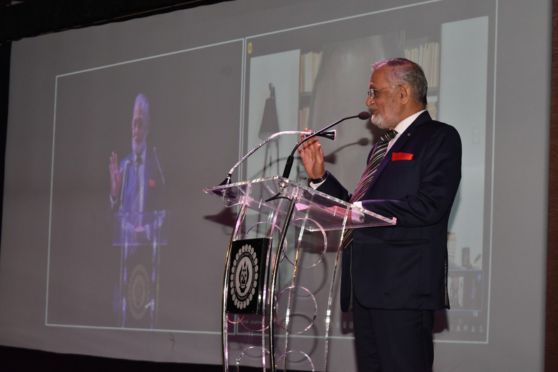
The first technical session concluded with food for thought for all participants & led to a lunch break at Concept Hall. The next session began with discussions on ‘Experiences with the Concepts enshrined in NEP’ 20’. The session was moderated by Prof. Dilip Shah, Dean of Student Affairs, The BESC with a panel of distinguished speakers from overseas, including, Prof. Martin Pout, Faculty International Development Manager - Faculty of Arts & Humanities & the Faculty of Social Sciences & Health; Durham University, UK, Mr. Kevin Goh, Deputy Consul-General, Australian Consulate-General Kolkata. The session began with Prof. Shah, who initiated discussions around academic credit transfer, easy entry & exit, and flexibility of choice of subjects in India & abroad.
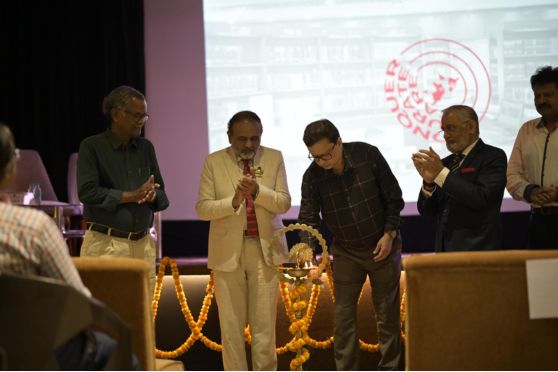
The first panelist, Prof. Pengji Wang, Professor of Marketing & Management (MBA) at James Cook University, Singapore who joined virtually answered this by running the participants through her screen which gave her audience some idea about the courses offered in her University in Singapore. She added to her ideas about Experiential learning, which focuses on skill development in students. She talked of how Western students are more in tune with experiential learning which makes them familiar with technological education which engages them in learning while doing. She was applauded by the audience for the implementation of experiential learning in students which could also be adopted by the Indian system of Education. Prof. Shah concluded the talk with the note that how much time we spend with students in person is the real question after we engage in NEP’20.
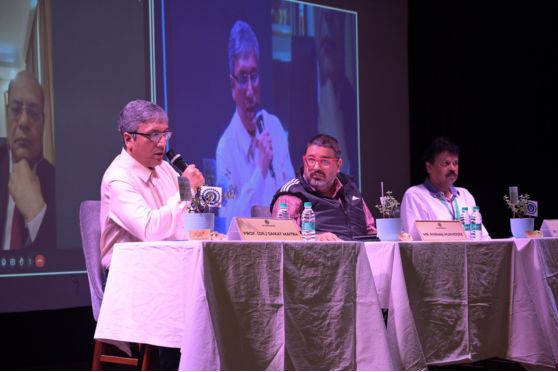
The next question was from the audience to Prof. Martin Pout, “Psychology can be studied as both BSC & B.A in UK?” Prof. Pout answered saying that the course module content can also be quite autonomous, like what makes a B. A or BSC in India is different from what it is in the UK, where the degree is based on how much hard science is a part of BSC, which can be understood in quantifiable experiments inside it & the extent to which qualitative data is within a subject would become a part of B.A courses.
The third speaker of the session, Mr. Kevin Goh, Deputy Consul-General, Australian Consulate-General, addressed the participants thereafter who spoke of the “comprehensive strategic partnership between India & Australia very seriously, where the NEP includes quite ambitious targets, like the enrolment of 50% of young Indians in Higher education abroad. He also added that two Australian Universities will be opening their two new campuses in India, which will serve as new relationship building among Australian Institutions & their Indian counterparts, where the students will be getting standards of education equivalent to the standards in Australia.
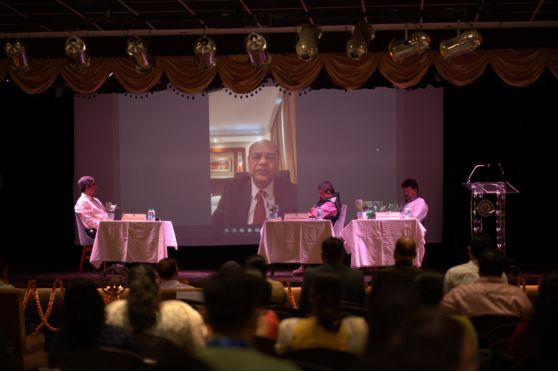
Prof. Shah, wrapped up the session with the question that many students who plan to study abroad, get stuck at the fact that post education they will be encouraged to stay further or not? To this, Mr. Goh answered that, “one of the policy decisions was to open up the post-graduation pathways for the Indian students who have completed specific courses in demand, like in the field of engineering, technology, and similar fields.”. To sum it up Prof. Pout gave the crux of credit transfer, where students have the option to either retain their credits from a degree mid-way and add it up to another degree or take the reward, one cannot do both.
The third technical session ‘Paper Presentations by Researchers’ of the conference commenced with the esteemed presence of Dr. Rajashree Shukla, the Head of the Department of Hindi at the University of Calcutta, who also served as the session moderator. Widely recognized as a scholar and literary critic, Dr. Shukla began the session with a captivating speech that highlighted the need for the early implementation of the new policy. She eloquently emphasized the exceptional intelligence and capabilities of the Indian youth, who have been making their mark worldwide and in various universities through their presence of mind. However, she acknowledged that they face challenges in advancing across diverse fields.
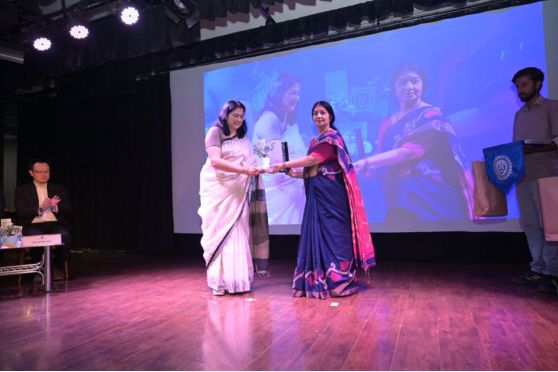
Dr. Shukla stressed that the proposed new policy, which would introduce a multi-disciplinary approach, would empower students to pursue their interests regardless of their academic backgrounds. As an example, she mentioned how an arts student could venture into the field of science. She also discussed the significance of value-added courses, asserting that their implementation under the new policy would result in a transformative shift towards proactive learning. Furthermore, she expressed optimism that the policy would provide Indian youths with the necessary tools and opportunities to excel globally.
Following Dr. Shukla's enlightening speech, several researchers presented their papers. Dr. Kathakali Bandopadhyay, explored the role of the National Education Policy (NEP) in the realm of geography through a comprehensive analysis. Her research focused on education, encouragement, and enlightenment, encompassing curriculum development, pedagogy, evaluation methods, and cross-disciplinary approaches.
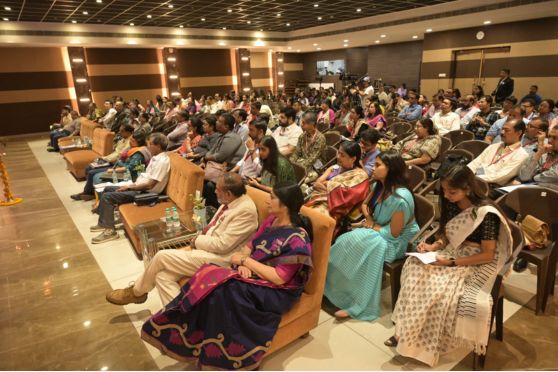
Dr. Siddhart Roy from Heritage College delved into the subject of expanding horizons: the evolution of interdisciplinary and progressive education. His presentation emphasized the importance of interdisciplinary learning and progressive educational practices, shedding light on their positive impact on students' overall growth and development. Subsequently, other researchers presented their findings, including the transformation of higher education in India with reference to NEP 20 and related topics.
The session reached its conclusion with a thought-provoking speech delivered by Dr. Suman Mukherjee. He centered his discourse on the distinction between human values and animal values, emphasizing the necessity of cultivating a love for knowledge in a liberal manner, nurturing a creative mindset towards education, and promoting moral thinking. Dr. Mukherjee advocated for a joyful approach to learning, highlighting the importance of a genuine passion for acquiring knowledge. He concluded the session by suggesting that education be referred to as "Edu care," emphasizing the caring aspect of the educational process.
As the day-long Conference ended, Prof. Minakshi Chaturvedi closed the session with her vote of thanks to Prof. Suman Mukherjee, DG, The BESC; Prof. Dilip Shah, Dean of Student Affairs & the Department of Commerce (Morning) without whom the Conference would be incomplete.